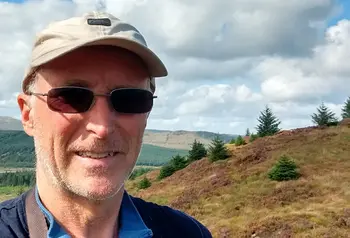Access to culture for disabled people: changing attitudes

Page last updated: 12 July 2022
2020’s UK Disability History Month theme is ‘Access: How far have we come? How far have we to go?’
This year, Sense celebrates 65 years since its foundation; a result of a conversation between two mums who had given birth to deafblind children.
The charity provides housing and high-quality support services for disabled people across the UK, making sure fundamental rights are addressed. We also want people to achieve their basic rights to friendships, being part of a community and feeling included. In our work, we have seen how access to culture, including heritage, plays a huge role in this.
2020’s UK Disability History Month theme is ‘Access: How far have we come? How far have we to go?’ It invites us to reflect upon the extent to which disabled people have gained access to all aspects of life in the UK. So what about culture?
How far have we come?
At one time, a certain type of attitude prevailed. It was all about unfortunate disabled people who, of course, just couldn't work, and didn’t have to use transport. It wasn’t deemed reasonable that they should enjoy access to cultural venues in their communities.
Times have changed. It’s 25 years since the Disability Discrimination Act made it illegal to discriminate against someone because of their disability. Legislation like this has made a difference to those negative attitudes, and it’s important to take the time to celebrate this.
We have seen many cultural organisations work with passion and commitment to improve access. I was glad to learn that The National Lottery Heritage Fund has put inclusion, including for disabled people, at the centre of its funding criteria.
Endeavours like these have improved people’s lives and have given many disabled people a greater sense of self belief and equality.
But we still need to see more progress.
Being disabled today
One in two disabled adults feel lonely every day, whilst nearly one in three non-disabled people avoided talking to a disabled person.
Today, about 50% of disabled people in the UK are in employment, compared with about 80% of non-disabled people. Four million disabled people live in poverty.
Too many remain on the fringes of society. Sense’s own research shows that one in two disabled adults feel lonely every day, whilst nearly one in three non-disabled people avoided talking to a disabled person.
Disabled people are less likely to participate in culture activities because of negative attitudes, prejudice, and inflexible ways of working.
In terms of improving access, it appears that changing attitudes is still the hardest battle of all.
How to help
Improving physical access is important, including the provision of appropriate transport and larger toilet facilities. Organisations should also make sure their websites and digital content are accessible.
But one of the key things we can do is to continue to change perceptions.
We have seen how this can work in practice during Sense’s buddying and culture programmes, which bring disabled and non-disabled people together based on mutual interests.
Everyone benefits from new connections and reduced isolation.
Benefits are reciprocal and equal. A disabled person takes part in new activities and volunteers learn new skills, such as British Sign Language. The art programmes draw on disabled people’s unique contributions and creativity, bringing people together based on a shared love of culture.

Everyone benefits from new connections and reduced isolation. Disabled and non-disabled participants learn from one another and break down barriers to access together. Sometimes it’s a small change that makes a big difference.
Going forwards: the coronavirus pandemic and beyond
There is a feeling of disbelief, dismay and growing anger as the public hears about the number of deaths of disabled people due to COVID-19. Disabled people have fallen through the cracks, and there is a real risk that attitudes and equal access to opportunities are permanently set back.
More than ever, we need a much more comprehensive plan to support disabled children, adults and their families, and the front-line staff supporting them. It can’t come through culture alone, of course. In 2020 we have a unique and once in a generation opportunity to address this as the Cabinet Office is charged with delivering a National Strategy for Disabled People.
But those working in the cultural sectors can play a big part, challenging themselves and others to change attitudes and make their projects open to all.
Tackling inequalities and access to the same opportunities, with a true commitment to ‘levelling up’ people’s lives, must become the new reality post-coronavirus.
It will be desperately needed, and would certainly be something worth celebrating.



